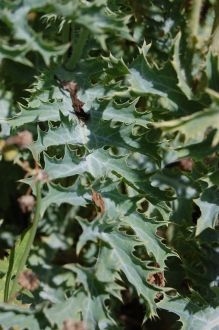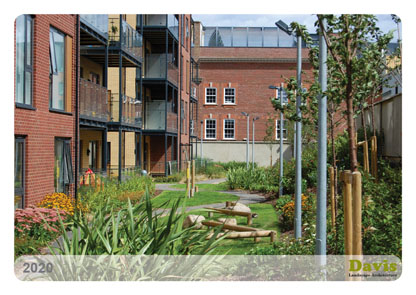Position: Full sun
Flowering period: Summer to early autumn
Soil: Moist, well drained
Eventual Height: 1m
Eventual Spread: 90cm
Hardiness: 8a, 8b, 9a, 9b, 10a, 10b
Family: Papaveraceae
Argemone platyceras is a short lived deciduous perennial. Its spiny blue green leaves are pinnatifid and up to 35cm long. Its white flowers have a yellow/ red centre, are solitary and up to 12cm across. Its fruit is a spiny capsule, up to 5cm long and 2.5cm broad.
Argemone platyceras, commonly known as Blessed Thistle, Prickly Poppy, Crested Poppy or Chicalote Poppy, is native Mexico. In its native habitat it grows in a prairie type habitat. Argemone platyceras is synonymous with Argemone mexicana var. aculeatissima
The etymological root of the binomial name Argemone is from the Greek and is a name given to plants by Dioscorides which were used to treat cataracts. Platyceras is derived from the Greek platus meaning ‘broad’ and kerasths meaning ‘horned’.
The landscape architect may find Argemone platyceras useful as a short lived perennial for a drought tolerant planting scheme. Once established this plant is drought tolerant.
Ecologically, Argemone platyceras flowers are attractive to pollinating insects.
Argemone platyceras prefers moist, well-drained soils. It tolerates most pH of soil. It will tolerate well drained sandy gravelly soils.
Argemone platyceras requires little maintenance. Seed heads may be removed to prevent excessive self seeding.









Ceras means horn, refering to the appendages below the top of the calyx of the calyx.